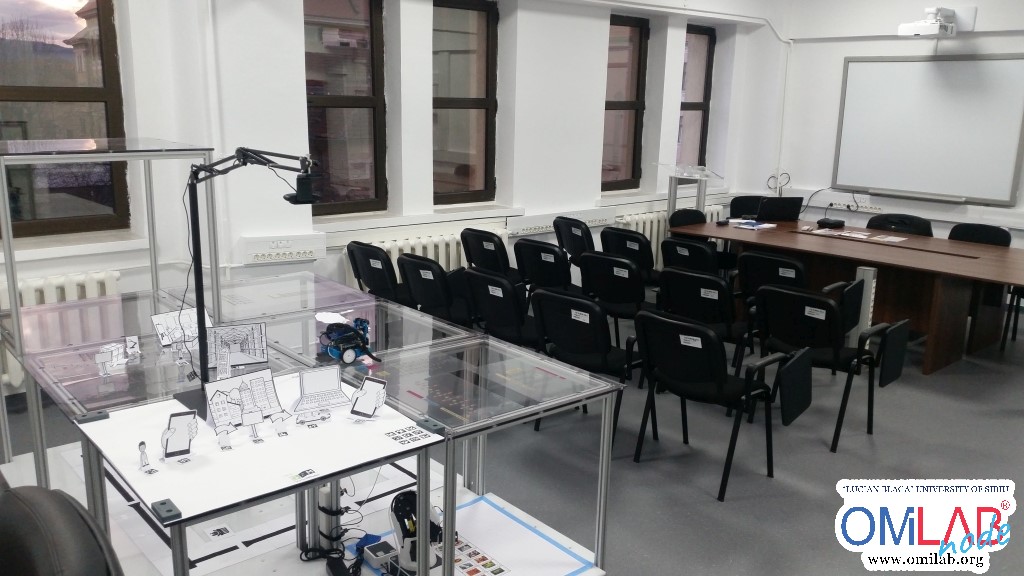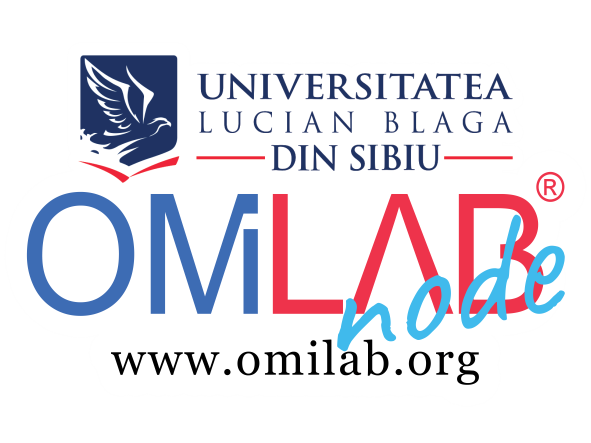The OMiLAB node at the Lucian Blaga University of Sibiu focuses on modelling and simulation-based design, optimization of manufacturing systems and processes, and optimizing smart cities specific processes.

The Sibiu Node has as main focus the following:
- Modelling and simulation-based design and optimization of manufacturing systems and processes
- Developing applications on the robotic arm using Flowcharts or Petri Nets on the Bee-up and ADOxx platforms; robot manipulation and robot connectivity are available.
- Designing, implementing and evaluating a new system of recognition of facial expressions using image processing and different machine learning techniques that would ultimately perform better in terms of computational speed and accuracy than existing methods. Applicability on workplace safety: determine employees’ emotion recognition; monitor a machine operator and detect the operator’s emotional state. Send an alert if the operator is distracted or angry.
- Modelling and optimizing smart cities specific processes (mobility, parking, environment). Wireless connected mobile robots, IoT components, image recognition applications, as well as modelling tools are available.
Competences
- Modelling methods and tools
- Image Processing
- Python and OpenCV programming
- Machine Learning algorithms
About the Hosting Organisation
The Lucian Blaga University of Sibiu (ULBS) is one the oldest Romanian universities. ULBS has established academic links and partnership agreements with 85 universities in 35 countries. Achieving a competitive education process, corresponding to the quality standards regulated by the European Union, which would allow ULBS graduates to gain international academic and professional recognition is a strategic objective of the University of Sibiu. The University promotes unique specializations in the Romanian academic space, and the high degree of trust recommends LBUS as a strong-institution involved in increasing the quality of the educational process. The promotion of study programs in languages of international circulation, of teaching methods based on information technology, and the generalization of the implementation of the European Transferable Credit System, represent guarantees for the consolidation of the educational process. Approximately, 15 000 students study each year at ULBS. They are coordinated by more than 800 professors and teaching staff in 9 faculties.



